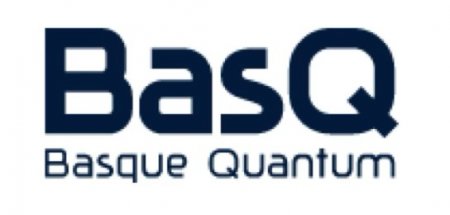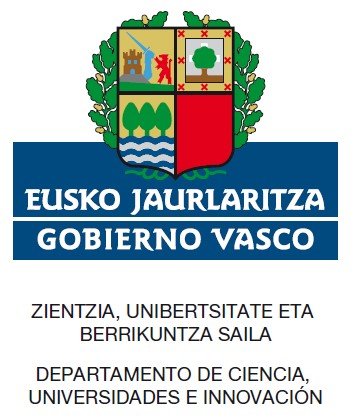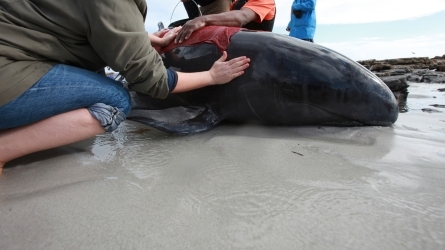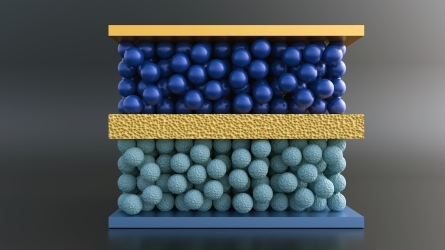
Quantum Algorithms in Pre-Fault Tolerant Hardware (BasQIBM25)
Azalpena
The field of quantum computing is on the brink of transformative advancements, driven by tangible progress in hardware development. As we enter the era of pre-fault-tolerant quantum devices, the potential for addressing complex quantum systems, once confined to theoretical realms, is becoming increasingly concrete. This conference aims to foster a collaborative environment where scientists from diverse backgrounds, including large-scale quantum experiments, classical approximation methods, and quantum algorithms, can come together to explore the implications of this hardware progress. By facilitating interdisciplinary discussions and knowledge sharing, we seek to identify critical challenges and opportunities in leveraging pre-fault tolerant quantum hardware to tackle complex problems in quantum physics, chemistry, materials science, and beyond.
ORGANIZING COMMITTEE:
- Geza Giedke (DIPC & Ikerbasque)
- Enrique Rico Ortega (CERN & UPV/EHU & Ikerbasque)
- Kristan Temme (IBM)
Helburuak
This conference aims to foster a collaborative environment where scientists from diverse backgrounds, including large-scale quantum experiments, classical approximation methods, and quantum algorithms, can come together to explore the implications of this hardware progress.
By facilitating interdisciplinary discussions and knowledge sharing, we seek to identify critical challenges and opportunities in leveraging pre-fault tolerant quantum hardware to tackle complex problems in quantum physics, chemistry, materials science, and beyond.
Jarduera nori zuzenduta
- Unibertsitateko ikaslea
- Irakasleak
- Profesionalak
Zuzendariak
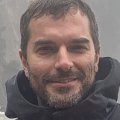
Enrique Rico Ortega
UPV/EHU - Ikerbasque
He estado trabajando en el campo de la física cuántica teórica en una amplia gama de temas que van desde la preparación de estados topológicos exóticos en sistemas abiertos hasta implementaciones de teorías de gauge en el retículo utilizando átomos ultrafríos. He hecho contribuciones clave a una gran cantidad de proyectos y las ideas de mi investigación con mis colaboradores han abierto nuevas direcciones en varios temas de actualidad de física cuántica en materia condensada, física atómico-molecular-óptica cuántica. Para dar un ejemplo, en mi trabajo reciente sobre la simulación cuántica de las teorías gauge en el retículo, con mis colaboradores, hemos presentado un nuevo enfoque para problemas fundamentales de la física de altas energías. En 2015 me trasladé a Bilbao con el prestigioso y competitivo puesto de investigador Ikerbasque. Actualmente tengo un puesto fijo en la UPV / EHU con un puesto de investigador asociado Ikerbasque.
Hizlariak

Dorit Aharonov
Hebrew University and Qedma

Mari Carmen Bañuls Polo
Max Planck Institute of Quantum Optics

Daniel Barredo González
CSIC

Rainer Blatt
Universitat Innsbruck & IQOQI & Alpine Quantum Technologies GmbH
Rainer Blatt’s research focuses on trapped ions as a means to address fundamental questions in quantum optics, spectroscopy, and quantum information science. In the laboratory, individual ions are confined in electromagnetic traps under ultrahigh vacuum, and their electronic states are manipulated and probed using laser beams. Experiments in his group, including the demonstration of quantum gates and highly entangled ion strings, have established that ions are outstanding candidates for quantum bits in a quantum computer. Current research themes include the investigation of light-matter quantum interfaces, the scalability of ion traps for quantum information processing, and the use of trapped ions to simulate quantum processes.

Robin Blume-Kohout Blume-Kohout
Sandia National Laboratories

Sophia Economou
Virginia Tech

Francesca Ferlaino
University of Innsbruck and IQOQI

Jay Gambetta
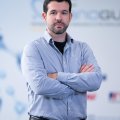
Fernando González Zalba
M. Fernando Gonzalez Zalba is an Ikerbasque Professor at CIC nanoGUNE where he leads the Quantum Hardware Group since 2024. He is also Head of Quantum Hardware Development at Quantum Motion, a start-up dedicated to the development of quantum computing hardware based on silicon technology. He holds a UKRI Future Leader Fellowship for the development of scaled up quantum computing architectures based on silicon technology. Furthermore, he is Associate Lecturer at the University of Cambridge - where he teaches Low-Dimensional Physics – he is Honorary Research Associate at University College London – for his dedication to graduate training – and Quondam Fellow at Hughes Hall, a University of Cambridge College. He obtained a PhD from the University of Cambridge with a thesis on Single-atom Electronics in 2013 and was Head of Quantum Computing at the Hitachi Cambridge Laboratory, a R&D centre of Hitachi Europe. In 2016, he received the R&D Technology Award from Hitachi's Centre for Social Innovation for the development of silicon-based quantum computing technology. He was awarded the Young Scientist Award by the Spanish Royal Society of Physics in 2017, and in 2019 became a Royal Society Industry Fellow.

William J. Huggins
Google Quantum AI

Balint Koczor
University of Oxford

Mario Motta
IBM Quantum, T. J. Watson Research Center

Frank Pollmann
TUM

Rahul Trivedi
Max Planck Institute of Quantum Optics

Zoltan Zimboras
University of Helsinki
Matrikula prezioak
| Registration fees | 2025-06-13 arte |
|---|---|
| 0 EUR | |
| 400,00 EUR |
Kokalekua
Miramar Jauregia
Mirakontxa pasealekua 48, 20007 Donostia
Gipuzkoa
Miramar Jauregia
Mirakontxa pasealekua 48, 20007 Donostia
Gipuzkoa
